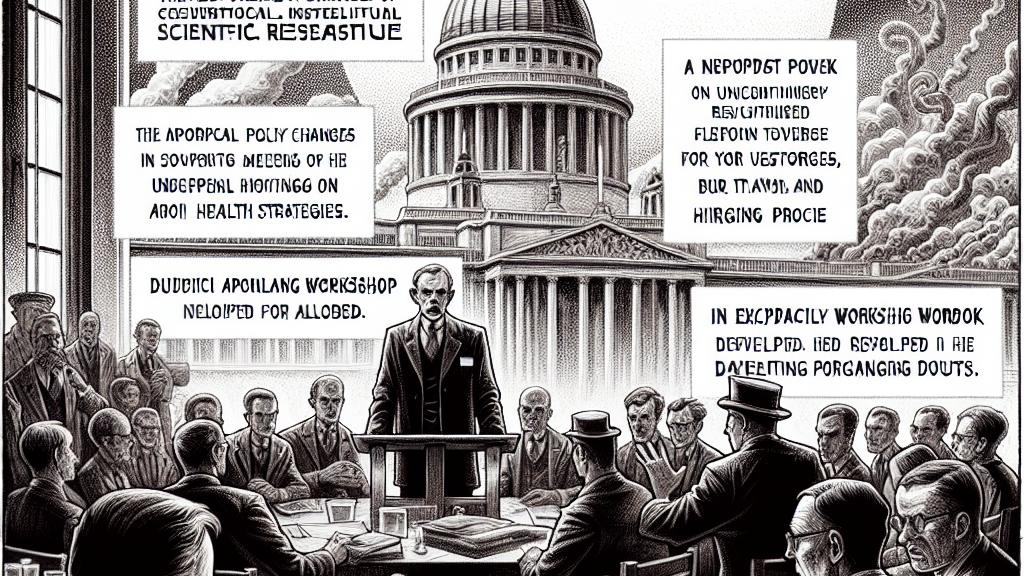Impact of Trump's Presidency on NIH Scientists and Research Activities
Overview
- Trump's presidency initiated drastic freezes on NIH functions, leading to widespread confusion.
- Scientists across the nation voice urgent concerns over future scientific exploration.
- Restrictions on communication stifle crucial research initiatives and collaboration.

Chaotic Changes at NIH
In the United States, the National Institutes of Health (NIH) is currently embroiled in turmoil following Donald Trump's inauguration as the 47th president on January 20, 2025. Almost immediately, Trump appointed Jay Bhattacharya—a controversial figure known for his critical stance on COVID-19 strategies—to head the NIH. This shocking decision sparked a series of drastic reforms, including a comprehensive freeze on NIH meetings, travel, and hiring processes. For instance, an important workshop designed to develop young scientific talent was infamously canceled mere minutes before it was to begin. These chaotic developments not only highlight disarray within leadership but also leave dedicated researchers grappling with daunting uncertainties, forcing them into a precarious position.
Researcher Anxiety Surfaces
Consequently, scientists around the country are expressing alarm over the implications of these abrupt changes. Jane Leapschutz, a leading researcher in opioid addiction from the University of Pittsburgh, candidly shared her worries about the long-term effects of disruption on research progress. She warns that even brief pauses could push the U.S. behind in critical health advancements, undermining years of progress on pressing health issues. Moreover, the anxiety festering among the scientific community is palpable; many researchers are gripped by fear and uncertainty about their ongoing projects, which stifles not only morale but creativity as well. When researchers are fraught with worry, it’s simply harder for them to innovate.
Communication Breakdown
One of the most disconcerting outcomes of this administration's actions is the sudden and sweeping halt in external communications, which is expected to last until February 1. This freeze is alarming, as it does not just inhibit the dissemination of valuable research findings; it also stalls the vital process of reviewing grant proposals that fund crucial studies. For example, just hours before a planned committee meeting to evaluate new funding proposals, notifications were issued that the meeting would be canceled, leaving researchers stunned and stranded. Such delays put vital scientific progress at risk and could compromise numerous initiatives—each critical to public health and safety—that rely significantly on NIH funding.
Young Scientists at Risk
Particularly troubling is how these travel restrictions disproportionately affect early-career scientists, who depend heavily on conferences and seminars for networking and collaboration opportunities. A young researcher recently lamented, 'We’re feeling adrift; nobody knows what the future holds!' Conferences are not just networking events; they are essential for sharing revolutionary research findings, receiving invaluable feedback, and cultivating partnerships that could lead to transformative discoveries. As these promising scientists confront a bleak and restrictive landscape, fears of lost career trajectories become all too real, heavily weighing on their aspirations and potential.

Loading...